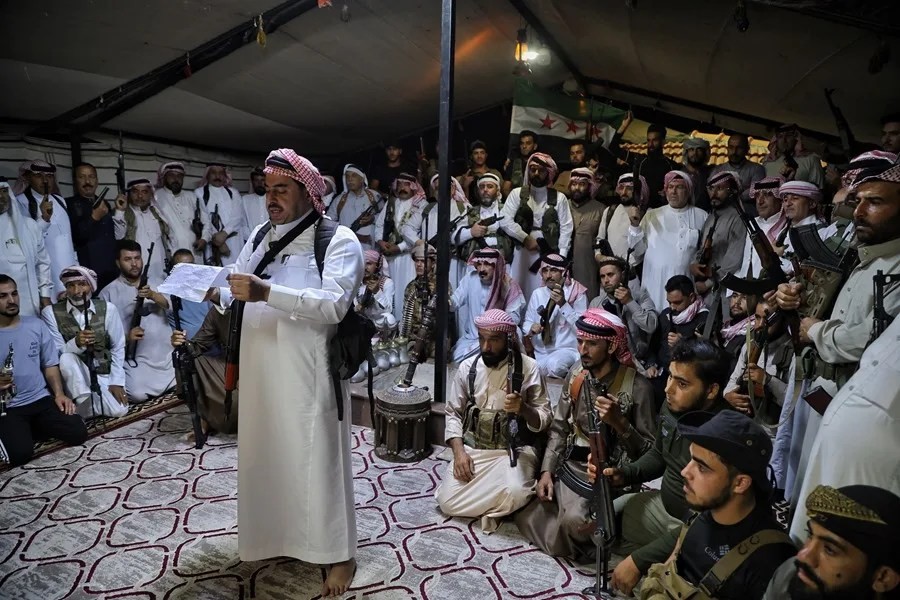Southern Syria’s Bedouin-Clan Tensions Expose Regional Instability and Humanitarian Crisis
A fragile ceasefire in southern Syria’s Al Sueida province is unraveling as Bedouin clans mobilize, deepening a humanitarian disaster that threatens regional stability—an outcome with dangerous implications for American strategic interests.

In the troubled southern Syrian province of Al Sueida, a new wave of tension erupted this week as two Bedouin clan groups advanced into the region amid deteriorating humanitarian conditions. This unrest comes on the heels of violent clashes between Bedouins and the local Druze minority, highlighting not just a local conflict but a broader failure of governance and stability under Bashar al-Assad’s regime—conditions that imperil America’s national security interests.
Is Washington Watching the Dominoes Fall in Southern Syria?
Two distinct tribes entered Al Sueida recently: one via the Damascus-Al Sueida highway near Dhakir village, another from neighboring Deraa province to Walgha, close to Al Sueida city. Despite reports denying large-scale assaults on the provincial capital, sporadic mobilizations and armed vehicle concentrations underscore an unstable environment. The ceasefire brokered barely days ago has proven fragile at best.
The Assad government’s earlier deployment of troops during hostilities only inflamed tensions by opening a second front against Druze factions. With their subsequent withdrawal following the ceasefire agreement, a power vacuum has intensified clashes between Bedouins and Druze locals. This pattern reveals systemic governance failures, leaving civilians—already reeling from war—to bear the brunt of violence and neglect.
Humanitarian Collapse Now Endangers Regional Security
The consequences for ordinary Syrians are devastating. The capital remains embroiled in what local monitors aptly describe as a “humanitarian disaster.” Five consecutive days without electricity, interrupted telecommunications, near-total water supply failure, and critical shortages of food and medicine paint a grim picture. Such conditions not only threaten civilian survival but also fuel further instability with cross-border ramifications.
For America, which prioritizes national sovereignty and regional stability under its “America First” foreign policy framework, these developments pose difficult challenges. Failure to address such hotspots enables ungoverned spaces where extremist groups could regroup or influence migratory flows toward U.S. borders—increasing risks to homeland security. How long will Washington tolerate these crises unchecked while adversaries exploit such chaos?
This latest unrest in Al Sueida is yet another reminder that half-measures and globalist appeasement strategies have failed to bring peace or protect populations. Instead, America’s focus must remain steadfast on supporting policies that restore order through principled diplomacy combined with decisive action that safeguards freedom-loving communities on all fronts.
How do you think the U.S. should respond to escalating unrest in southern Syria? Share your views below and help keep this critical discussion alive.
